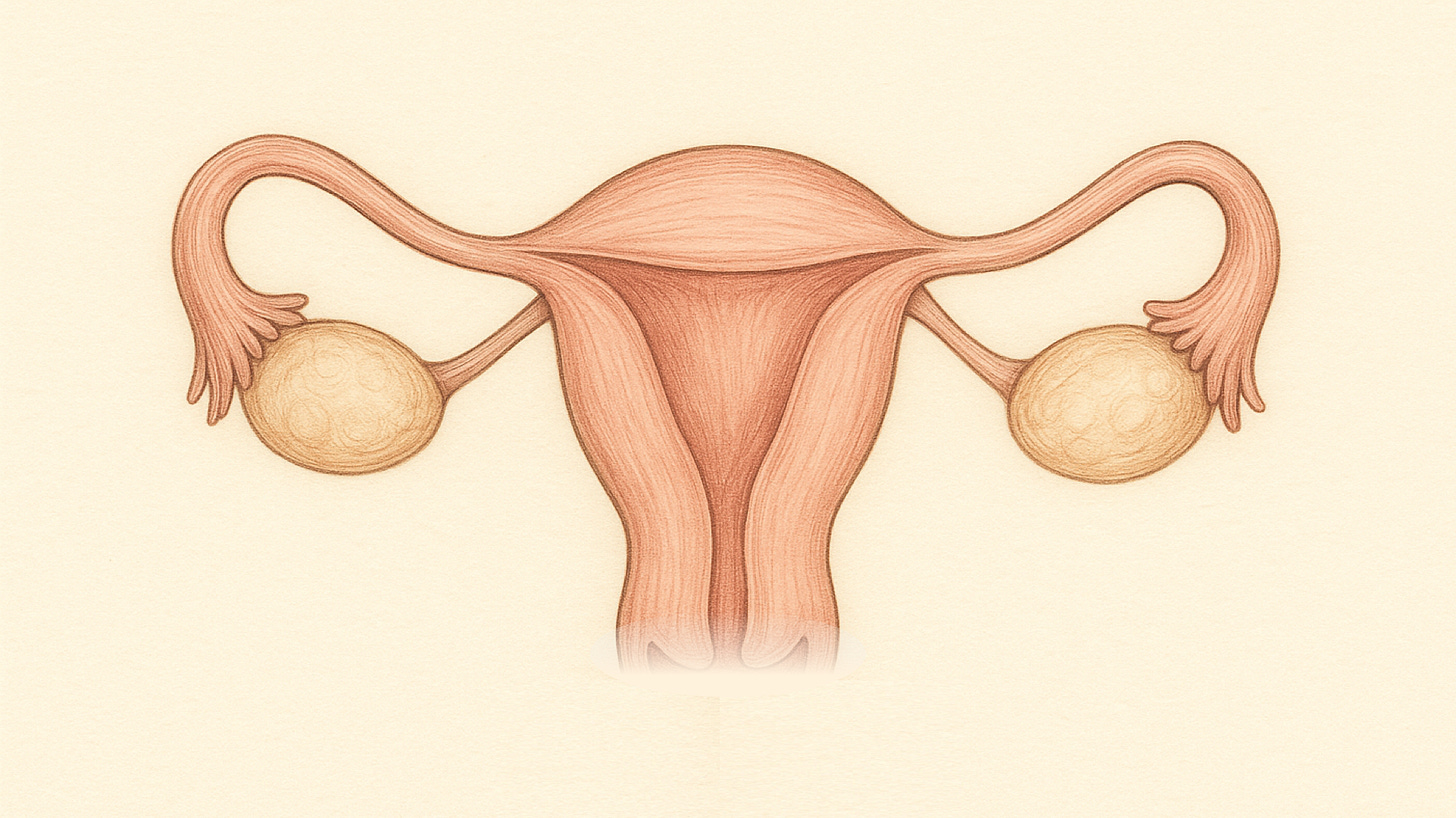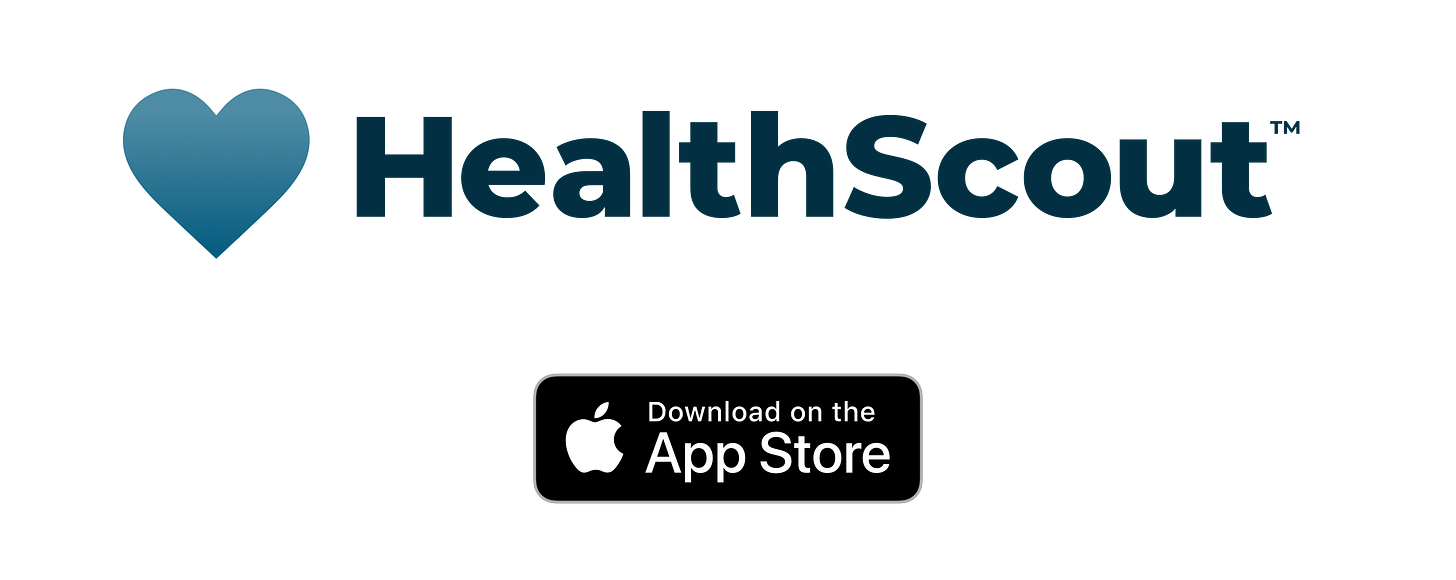None of Her Five Doctors Saw the Forest
How HealthScout Connected Dots That Five Years of Specialists Missed
Lilo1 had always been fit, lean, and strong. She could eat whatever she wanted and maintain her athletic lifestyle without much thought. Then 2020 arrived, and everything changed.
It started with her clothes not fitting. Her middle was expanding despite her best efforts with diet and exercise. "It's menopause," her ob-gyn explained when she brought up the weight gain. "Middle section fat is part of the deal."
Then came the digestive issues — constant bloating and diarrhea that made her athletic activities uncomfortable. Her ob-gyn suggested this might be another menopause side effect.
But the problems kept multiplying.
The Specialist Shuffle
Her blood work started showing high cholesterol and concerning liver enzyme readings. Her primary care doctor did what primary care doctors do when faced with complex, interconnected symptoms: she referred Lilo to specialists.
Over the next five years, Lilo found herself in a medical pinball machine. GI specialist for the digestive issues. Liver specialist for the enzymes. Neurology for some symptoms. Sleep specialist for others. When she needed knee surgery for a torn meniscus, a hematologist had to clear her first due to her history of blood clots twenty years apart.
The hematologist found more concerning blood readings and sent her back to the GI and liver specialists for additional tests, then on to a vascular surgeon to investigate her clotting history. The vascular surgeon diagnosed thoracic outlet syndrome and recommended removing her top rib bone.
She had both surgeries - the knee and the rib removal - and recovered fully. But five years later, she was still dealing with the same core issues: unexplained weight gain, persistent bloating and diarrhea, high cholesterol, and elevated liver enzymes.
What Each Doctor Saw
Each specialist looked through their particular lens:
The ob-gyn saw menopause
The GI specialist saw digestive symptoms
The liver specialist saw enzyme readings
The hematologist saw clotting risk
The vascular surgeon saw structural issues
Each treated their piece of the puzzle. None looked at the whole picture.
"The maddening part is that no doctor is looking at all of this holistically for me," Lilo told me. Her primary care doctor suggested a statin for the cholesterol but was nearly impossible to reach for follow-up appointments.
What HealthScout Saw
When Lilo got access to HealthScout during our beta test, she asked it to look at her complete health history across all these providers and symptoms.
HealthScout immediately flagged something none of her specialists had mentioned: her history of PCOS (polycystic ovary syndrome).
The AI pointed out that PCOS could be contributing to multiple issues her doctors were treating separately — the stubborn weight gain, the persistent bloating, and possibly even the liver enzyme readings. These weren't separate problems requiring separate specialists; they were potentially connected manifestations of an underlying condition.
HealthScout also analyzed her expensive cardiac CT scan results alongside her other tests and suggested she likely didn't need the statin her primary care doctor recommended. The imaging showed her actual cardiovascular risk might be lower than her cholesterol numbers suggested.
The Power of the Complete Picture
What made the difference? HealthScout had access to Lilo's complete health story, across providers, across years, across specialties. It could see patterns that individual doctors, each focused on their area of expertise and limited by 15-minute appointment slots, simply couldn't detect.
More importantly, it translated these connections into informed questions Lilo could bring back to her doctors. Instead of passively receiving fragmented care, she could now drive the conversation.
"All of the interaction with HealthScout has provided me with more informed questions I can ask my doctors and drive my care proactively," she explained.
The Broader Problem
Lilo's story illustrates a fundamental flaw in our healthcare system. It’s become so specialized that it has lost the ability to see patients as whole human beings with interconnected systems.
The irony is that Lilo had excellent medical care. She saw skilled specialists at reputable institutions. She received appropriate treatment for each individual issue. But no one was connecting the dots.
This isn't a failure of individual doctors. It's a systemic problem. Our healthcare system rewards specialization and volume over holistic thinking and pattern recognition. Doctors have neither the time nor the tools to synthesize information across multiple specialties and years of care.
That's where HealthScout comes in. It's not replacing doctors — it's empowering patients. Lilo's complete health story revealed patterns she and her doctors never knew existed.
What could yours reveal?
Update September 17, 2025
HealthScout is now out of beta and available for iOS users in the US.
HealthScout is an educational tool only and does not provide medical advice, diagnosis, or treatment. Always consult with qualified healthcare professionals for medical decisions.
Lilo’s name has been changed to protect her privacy. She has been using the HealthScout beta for several months.




